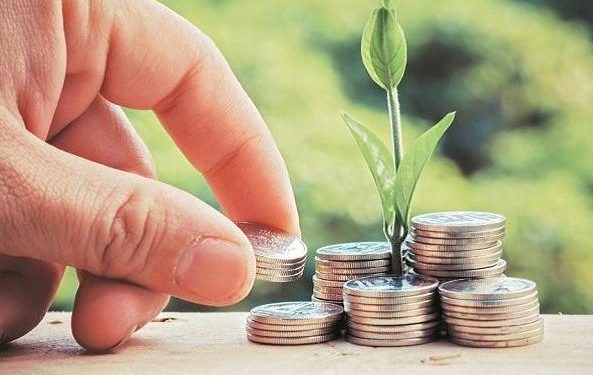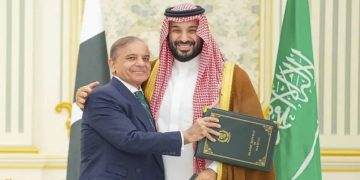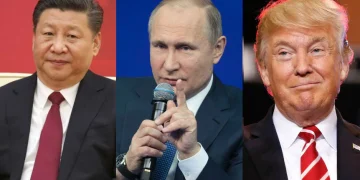Fabio Panetta
The COVID-19 pandemic has caused the largest decrease in global economic activity on record. But the drop in carbon dioxide emissions has been only temporary. Although global CO2 emissions fell by 6.4 per cent overall in 2020, they had already begun to increase in the second half of the year and have now returned to pre-crisis levels.
The fact that last year’s extraordinary circumstances still did not bring global emissions into line with the targets set by the 2015 Paris climate agreement is a stark reminder of the scale of the challenge we face. As the Nobel laureate economist William Nordhaus reminds us, climate change is the quintessential global externality. Its effects are spread around the world and no country has sufficient incentives or capacity to solve the problem on its own. International coordination is therefore essential.
Fortunately, a return to multilateral cooperation through the G7, the G20, and the Financial Stability Board offers a unique window of opportunity. Following US President Joe Biden’s decision to rejoin the Paris agreement, the European Union’s commitment to reach carbon neutrality by 2050, and China’s pledge to do the same by 2060, we may now be at a turning point for global climate action.
Three priorities stand out on the international agenda. The first is the need to increase global carbon prices. Putting a higher price on carbon is the most cost-effective way to reduce emissions at the necessary scale and speed. By internalising the social cost of emissions – making emitters pay – carbon pricing leverages the power of markets to steer economic activities away from carbon-intensive activities.
Currently, carbon prices are far too low. The IMF calculates that the average global carbon price is only $2 per tonne. And, according to the World Bank, only 5 per cent of global greenhouse-gas emissions are priced within the range required to achieve the Paris agreement’s goals.
Here, advanced economies can lead by example and use the current policy window to commit to carbon-price paths consistent with the Paris accord. Although smaller advanced economies account for only a limited share of global emissions, their adoption of decisive decarbonisation measures could encourage developing countries to follow suit.
The second priority is to use the recovery from the COVID-19 pandemic to “build back better.” Decisions made now will shape the climate trajectory for decades to come. Policymakers should seize this opportunity to set the global economy on a sustainable growth path. The EU recovery package – Next Generation EU – lives up to that ambition.
The third priority goes to the heart of the financial system and central banking: financing the green transition. Phasing out fossil fuels implies the need for massive investment, even if estimates of the precise figure are subject to significant uncertainty. Looking beyond emissions reductions to the broader sustainability agenda, the United Nations estimates that implementing the 2030 Sustainable Development Agenda will require global investments of $5-7 trillion per year. To fill this gap, it will be crucial to mobilise the resources of financial intermediaries, including banks.
Sustainable-finance products – such as green lending, green and sustainable bonds, and funds with environmental, social, and governance (ESG) characteristics – have grown dramatically in recent years. Unfortunately, the field suffers from information asymmetries and insufficient transparency.
To foster the growth of sustainable finance, many countries have started developing regulatory frameworks to combat “greenwashing,” and the EU is at the forefront of these efforts. Yet in the absence of global coordination, different jurisdictions have developed different approaches, and industry-based initiatives have proliferated.
The resulting edifice of inconsistent and incomparable standards, definitions, and metrics has fragmented sustainable-finance markets, reducing their efficiency and limiting the cross-border availability of capital for green investment. As jurisdictions compete to attract finance, the risk of regulatory arbitrage and a race to the bottom has grown. If left unaddressed, this trend could result in lower standards globally, increasing the likelihood of greenwashing.
But we now have an opportunity to start devising a common global approach. Sustainable finance is a top priority for both the G20 under its Italian presidency and the G7 under its British presidency. Moreover, in a public letter shortly after her confirmation, US Secretary of the Treasury Janet Yellen called for an upgrade to the G20’s sustainable-finance working group to “reflect its importance.”
A key first step is to agree on minimum standards for corporate disclosures. If a company’s sustainability performance is unclear or unknown, ascertaining the sustainability of the related financial assets is impossible. We must replace the current alphabet soup of reporting frameworks with a common standard. To that end, the EU’s approach – including the ongoing revision of the Corporate Sustainability Financial Reporting Directive – represents an advanced benchmark toward which any international standard should aim.
For a common standard to launch a race to the top, it must not fall short of the best international practices. It should cover all ESG aspects of sustainability. And it should require companies to disclose not just issues that influence enterprise value, but also information on the company’s broader environmental and social impact (known as “double materiality”).
A second and even greater challenge is to ensure that countries develop consistent classifications of what counts as sustainable investment. If an activity or asset is considered sustainable in one country but unsustainable in another, there cannot be a truly global sustainable-finance market.
To ensure a global level playing field, today’s leaders should aim for an agreement on common principles for well-functioning and globally coherent taxonomies. Just as governments need to be mindful of the risk of carbon leakage, they must account for the risk of carbon financing leakage.
Finally, we need to ensure that all segments of financial activity remain aligned with broader climate objectives. The enormous energy consumption and associated CO2 emissions of crypto-asset mining could undermine global sustainability efforts. Bitcoin alone is already consuming more electricity than the Netherlands. Controlling and limiting the environmental impact of crypto assets, including through regulation and taxation, should be part of the global discussion.
Climate change and sustainability are global challenges that require global solutions – and nowhere more so than in the financial sector. The current political environment offers us a rare opportunity to make substantial progress. We must not waste it.
The writer is a member of the Executive Board of the European Central Bank. ©Project Syndicate.






































